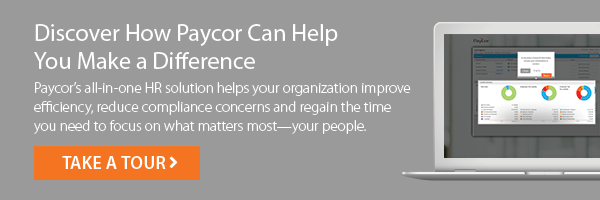Paycards are an alternative method of paying employee wages—instead of payment via paper check or direct deposit, an employee’s pay is loaded onto a debit card each pay period. These cards eliminate the need for a traditional bank account and, in some states, can enable companies to go completely paperless when combined with direct deposit. Many employers have implemented a paycard system, but it’s important to weigh the advantages and disadvantages of paycards before making a decision to switch.
Using a paycard system
Generally, paycard systems work in the following way:
- An employer establishes an account with a paycard program and deposits money into their account.
- The program or its partner bank issues the paycards.
- Employees receive a PIN and can use their card as if it were a traditional debit card.
- Employees’ wages are deducted from the employer account and are loaded onto the paycard every pay period.
Employer costs depend on the volume of workers using the cards and fees imposed by the bank and the program. Employees may be charged fees including monthly fees, ATM fees and withdrawal fees depending on the program. But choose your provider carefully. Depending on which state your business is in, it may be illegal to charge fees to employees.
Naturally, the mention of so many potential fees has raised red flags surrounding the use of paycards. Because of this challenge, federal law requires businesses to offer at least one other type of payroll distribution (paper check or direct deposit) to its employees.
The case for paper checks
- Paycards can turn out to be a costly option for employees. For example, the New York Times found that one provider charged $1.75 for ATM withdrawals, $2.95 for a paper statement, $6.00 to replace a lost or stolen card, and $7.00 for inactivity fees. Some companies even charge a fee for calling to check the available balance on the card.
- Payroll laws in some states prohibit employers from compelling their workers to receive their pay in ways that cost them money, and some paycard systems do just that by collecting so many fees. Depending on the program, paycards may not necessarily reduce the processing costs for the business.
However, despite these criticisms of paycards, they can be an advantageous option for companies that partner with the right provider.
The case for plastic paycards
- 22% of U.S. households in America today are considered “unbanked.” This means they do not have access to a mainstream bank account or the financial services it provides. These families cannot receive direct deposit payments.
- By switching to paycards, many unbanked employees can save up to a week’s worth of salary they would have otherwise lost to the accumulation of fees such as payroll check cashing charges or penalties from payday lenders.
- Employees can use paycards without a credit check or any bank account requirements.
- Paycards and direct deposit can be cheaper than paper checks—by up to $3.15, according NACHA, The Electronic Payments Association.
- For most employers, paycards are easy to set up and provide the benefit of safety and convenience.
- Paycards allow companies to go mostly paperless, even if some of their employees do not have bank accounts.
Paycards can reduce payroll costs for employers and offer a convenient choice for employees. However, it’s important to research your options, understand the associated costs (for you and your employees), and create a plan to introduce the program to employees before you decide to implement paycards. Learn more about Paycor’s employee payment options, including secure and easy-to-use paycards.










